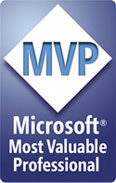|
|
Chris De Herrera's Windows CE Website |
|---|---|
About |
|
| By Chris De Herrera Copyright 1998-2007 All Rights Reserved A member of the Talksites Family of Websites Windows and
Windows CE are trademarks of
Microsoft All Trademarks are owned |
Press Releases
[an error occurred while processing this directive]
IMPART TECHNOLOGY ANNOUNCES THE AVAILABILITY OF A REVOLUTIONARY APPROACH TO PEER-TO-PEER WIRELESS DEVELOPMENT
With billions of wireless machines entering the marketplace from different manufacturers, different operating systems and incompatible applications, developers are overwhelmed with making interactions between machines a reality.
Austin, Texas (August 14, 2001) - Impart Technology, Inc., a pioneer in developing asymmetric peer-to-peer communication across mobile and embedded wireless devices, has announced the availability of the Impart Technology™ Software Development Toolkit (SDK).
With forecasts in the billions, Bluetooth stands to be the fastest adopted standard in computing history looking to connect the myriad of embedded and wireless devices - PDA's, automobiles, cell phones, digital cameras, MP3 players, vending machines, and more. "Mobile Computing is much more than connecting, it's about interacting," says Scott Bleakley, CEO and President of Impart Technology, "We are enabling wireless developers to create applications that fundamentally change the way people use these emerging devices".
Now developers can create wireless peer-to-peer applications that:
· Are asymmetric, eliminating the need for common software on all
devices;
· Use a common, compact, protocol-independent communication abstraction
facility;
· Provide dynamic configuration for support of ad hoc networks of mobile
devices;
· Allow dynamic upgrades and extensions for new applications and devices;
· Achieve a small memory footprint through just-in-time assembly.
Initially supporting IrDA with the Bluetooth release in the 4th quarter of this year, the patent-pending SDK will include:
· Rostanga™, Impart's platform-neutral language and compiler for
creating embedded state machines.
· A developer's version of the Impart Technology Embedded Communication
Broker.
· Sample code and tutorials featuring a full-function application for
beaming PIM information between WinCE devices and Palm OS devices.
IrDA applications created with the Impart SDK can be converted into Bluetooth applications with minimal effort.
The SDK will be available immediately from Handango™ (http:// www.handango.com). For a limited time, the promotional pricing for the IrDA-supported version of the SDK will be $995.00 with a no-charge upgrade to the Bluetooth-supported version in the 4th quarter of this year. Full list price for the Bluetooth/IrDA SDK will be $1,995.00. The SDK requires Insignia's JeodeRuntime™ for the Compaq iPAQ™ Pocket PC, also available from Handango, or the Personal Java JVM for the HP Jornada™ 540, available from Sun's Java™ website.
Impart Technology is an Austin, Texas based software company and has raised venture funding from Techxas Ventures, AV Labs, G51 Capital and Convergent Investors. The company's website is www.imparttech.com.
Note to Editors: Impart Technology, Inc., Embedded Communication Broker logo are either registered trademarks or trademarks of Impart Technology in the United States and/or other countries. The names of actual companies and products mentioned herein may be the trademarks of their respective owners.
For More Information Contact:
Impart Technology, Inc.
500 Capital of Texas Hwy. Bldg. 1 Suite 110
Tel: 512-347-1050
FAX: 512-329-5920
Internet: info@imparttech.com
[an error occurred while processing this directive]


